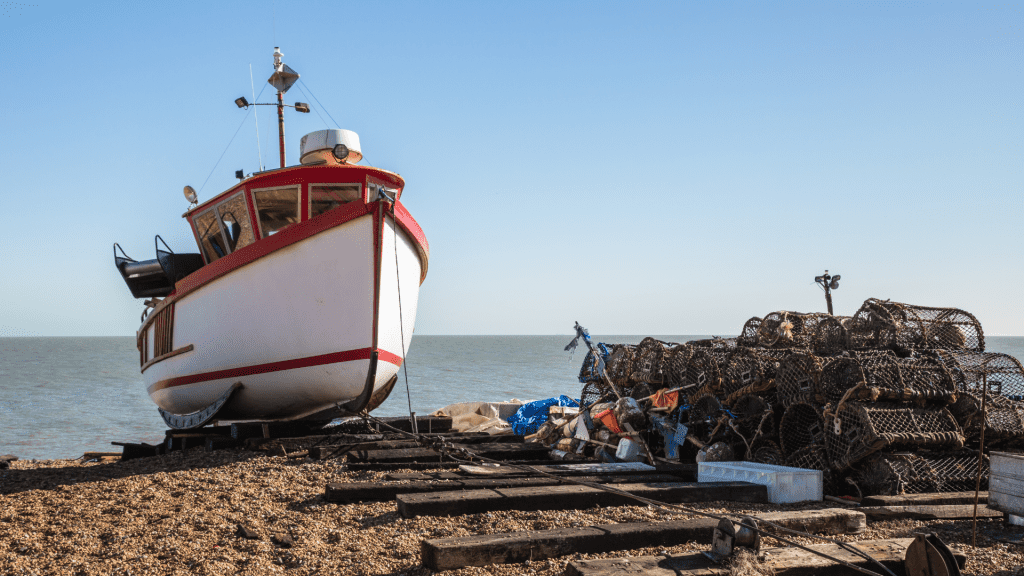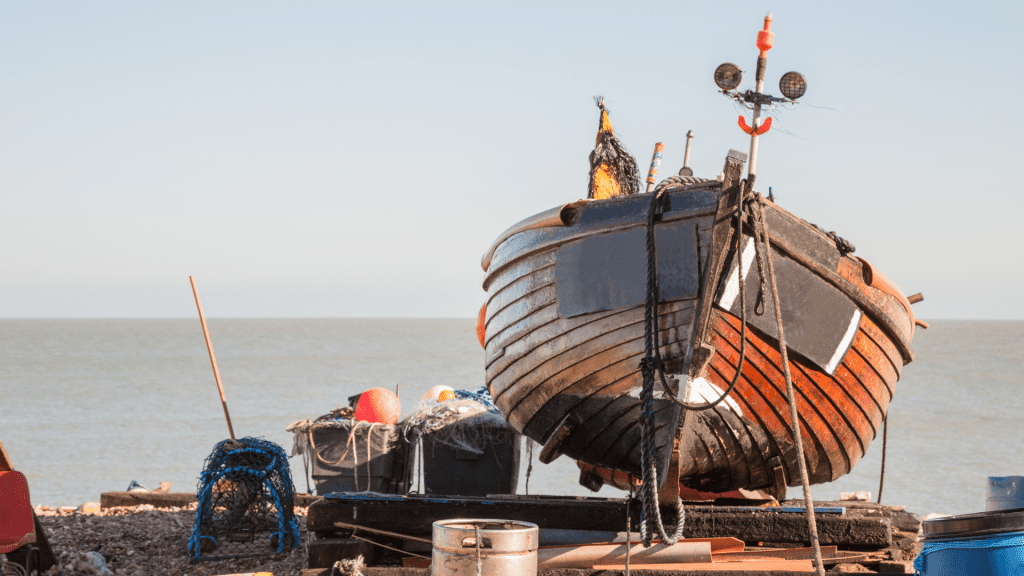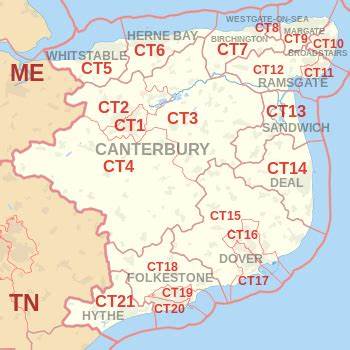
What Is the Current State of the UK Fishing Industry?
At Jenkins and Son Fishmongers, our business is linked to the current state of the UK fishing industry as a whole—no surprises there. What is
What Is the Current State of the UK Fishing Industry?
At Jenkins and Son Fishmongers, our business is linked to the current state of the UK fishing industry as a whole—no surprises there.
What is surprising is the incredibly wide range of events, developments, and trends that impact our business day-to-day.
That’s why we thought it would be interesting to put together this quick overview of the current state of the UK fishing industry.
So, if you’re interested in finding out more about the business of fish, read on!
Cod is a staple of the British diet—fish and chips, anyone?
And yet, cod has never been a year-round UK product. The waters surrounding the UK get too warm during the summer months, forcing fishermen to travel north to colder waters off the coast of Iceland, Norway, and Greenland.
This has been the status quo for years, but Brexit has thrown a wrench into the system.
The main issue is that, post-Brexit, UK fishermen will no longer have automatic access to EU waters. This means that they may need to get special permits to fish in areas where they have traditionally fished—permits that have been slow to materialize. As a result, the cost of cod has soared by 75%.
Luckily, after two years of negotiating, the UK fishing industry has finally seen some progress in the form of a fishing access deal with Norway. This deal should hopefully start to bring cod prices back down to more reasonable levels.
The tragic war in Ukraine has shocked people around the world. But for UK fishermen, the conflict has had a very real and immediate effect in the form of skyrocketing marine diesel prices.
Fishermen rely heavily on marine diesel to power their boats. And with the conflict in Ukraine causing global supply chain issues, the price of marine diesel has surged by over 100% across the UK.
This has meant that for many fishermen and small to medium fishing companies, it just isn’t worth the cost to go out and fish. The industry is waiting with bated breath to see what the government will do to address these rising prices.

In the UK, as in many other countries, fishing quotas are always a controversial topic. The quotas are designed to prevent overfishing and protect fish stocks for future generations.
However, the way the quotas are calculated and applied can often be unfair to smaller businesses and individual fishermen. This has led to tension and protests in the past, with many people feeling that the quotas are not doing enough to protect the industry as a whole.
The UK government is currently in the process of conducting a full review of the quota system. Let’s hope that they can find a way to create a system that is fair for all involved.
As with most industries, the UK fishing industry is impacted by climate change.
Rising sea temperatures have meant that fish are migrating to different areas than they have in the past. This can make it difficult for fishermen to know where to find the fish they are looking for.
In addition, climate change has led to an increasing number of storms. This can damage boats and equipment, as well as make it dangerous for fishermen to go out and do their job.

According to a report from Sainsbury’s, British citizens are eating more fish than ever—but not the fish you’d expect.
The report shows that sales of traditionally less-popular fish species including pollock, sea bass, coley, and tilapia are up by 117%. This massive jump has led experts to predict that by 2030, only 50% of UK fish sales will be cod, haddock, tuna, salmon, or prawns (i.e., the “Big 5”).
This is big news for the UK fishing industry, because it means fishermen have a financial incentive to fish sustainably. Historically, the “Big 5” has been overfished to the point of devastation. But now, with a growing demand for other fish species, there is hope that the industry can be saved.
The UK fishing industry is facing some big challenges. But it’s important to remember that the industry has always been adaptable. Fishermen have always had to contend with changes in the weather, the climate, and the availability of fish.
The UK fishing industry has a long and proud history—and we’re not going anywhere!
If you have any questions at all, speak to Darren and the team when you next pop in or shop our range of fresh fish.
Read our most recent posts

At Jenkins and Son Fishmongers, our business is linked to the current state of the UK fishing industry as a whole—no surprises there. What is
Get our latest offers, discounts and news straight to your mailbox. You can unsubscribe at any time (but you won’t want to)
